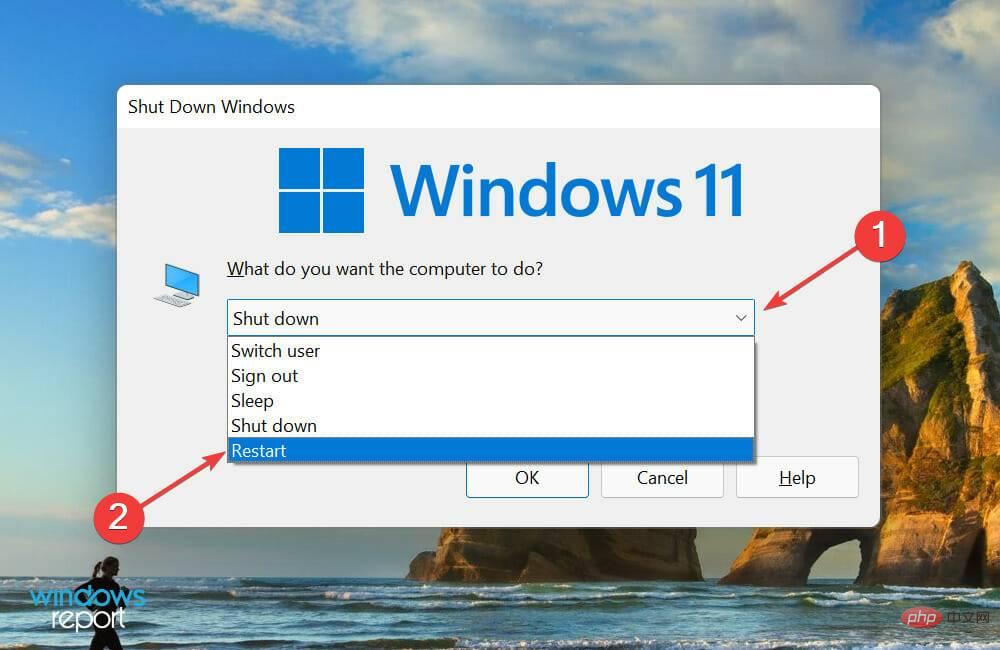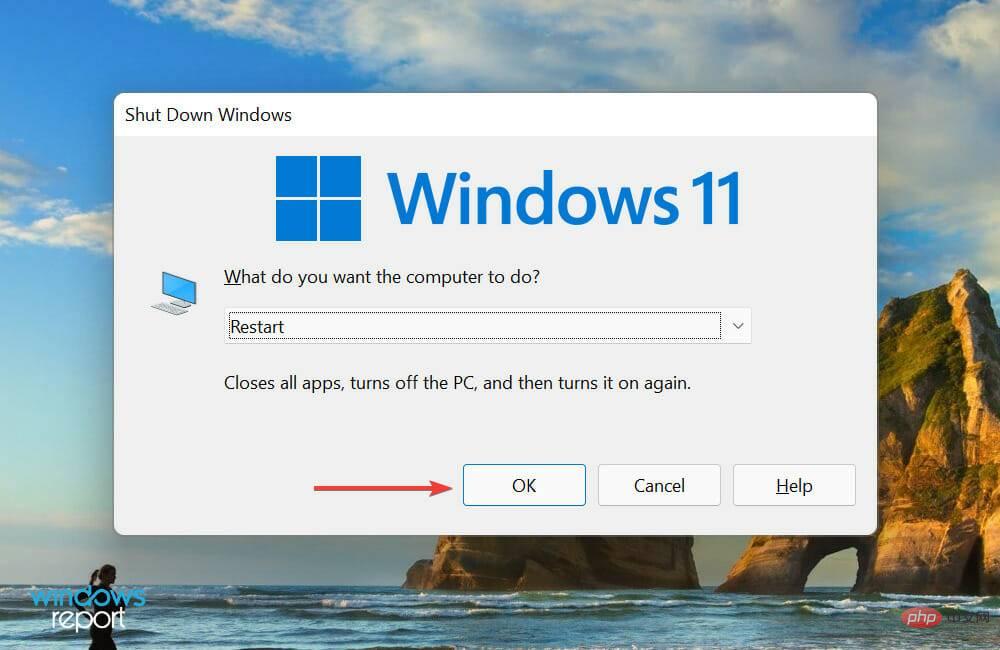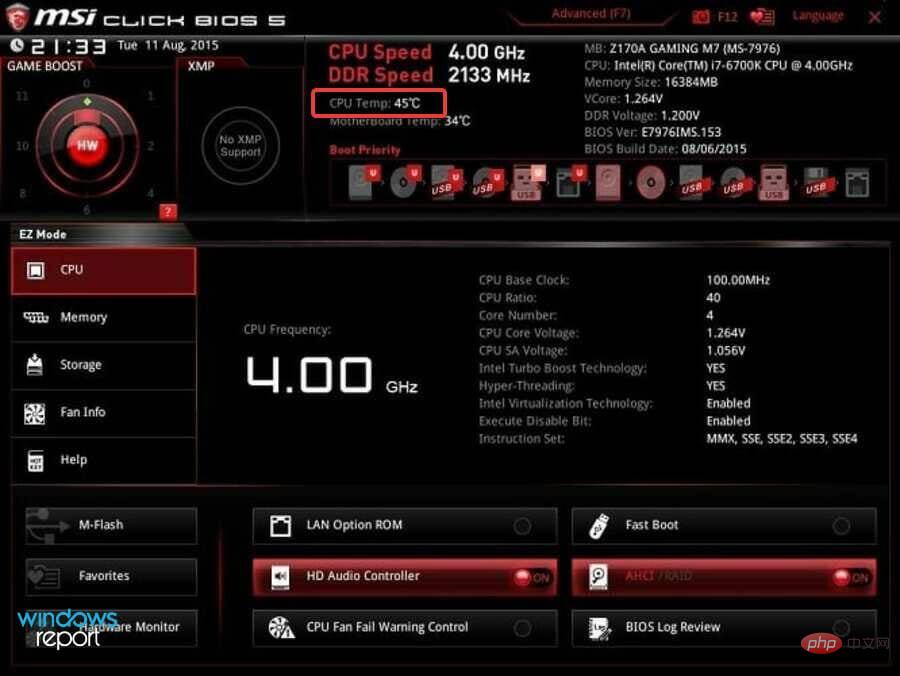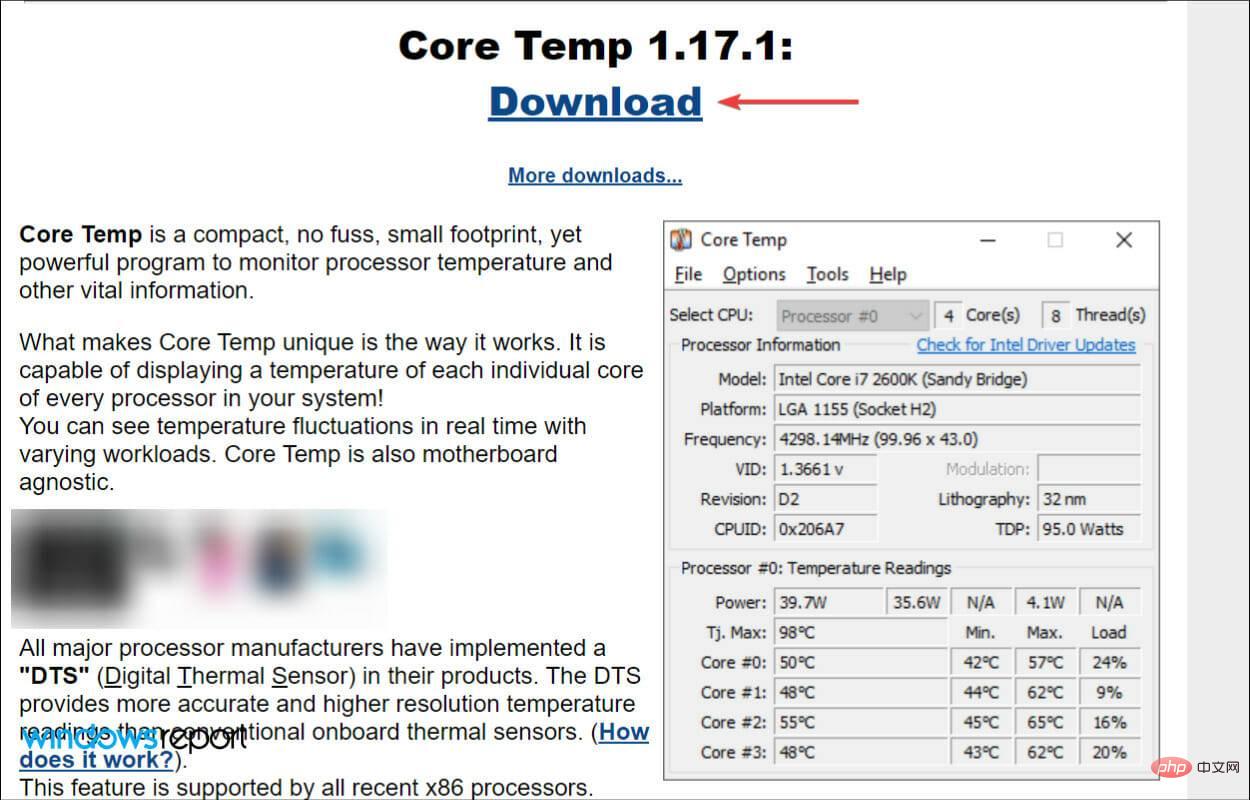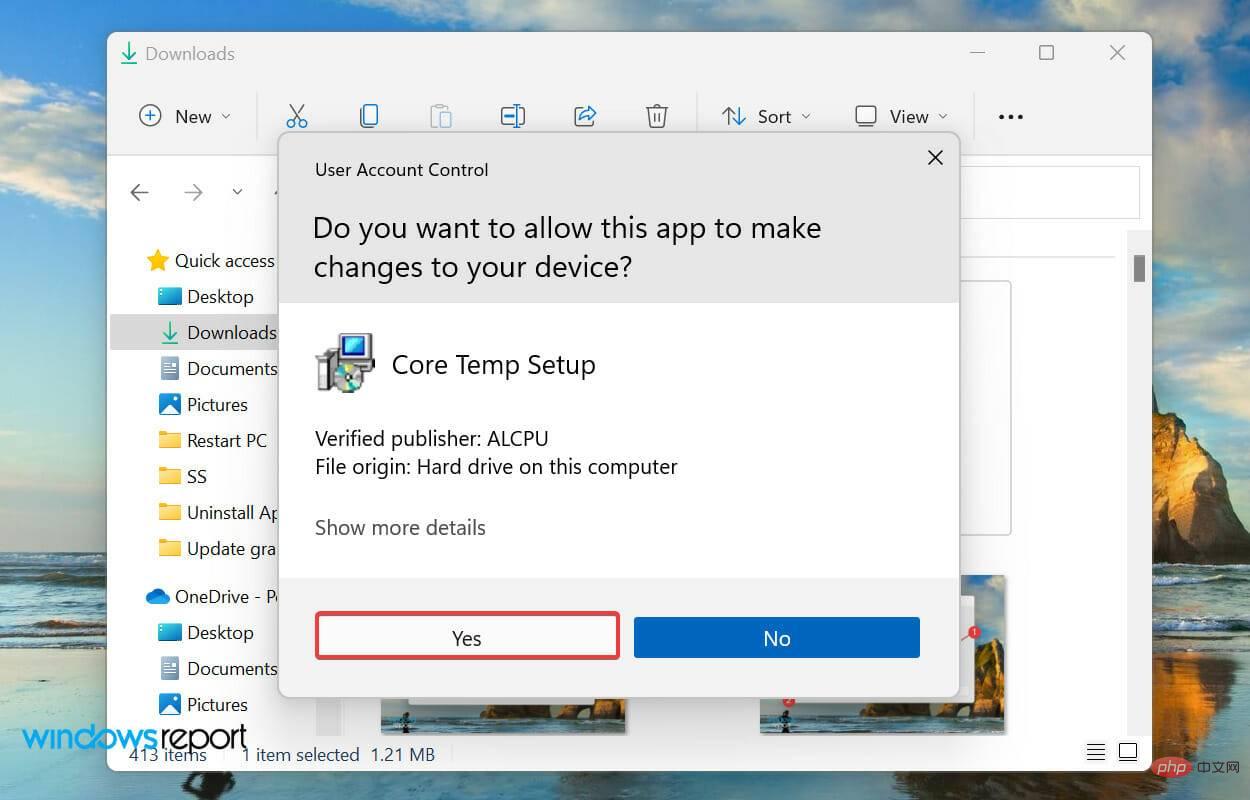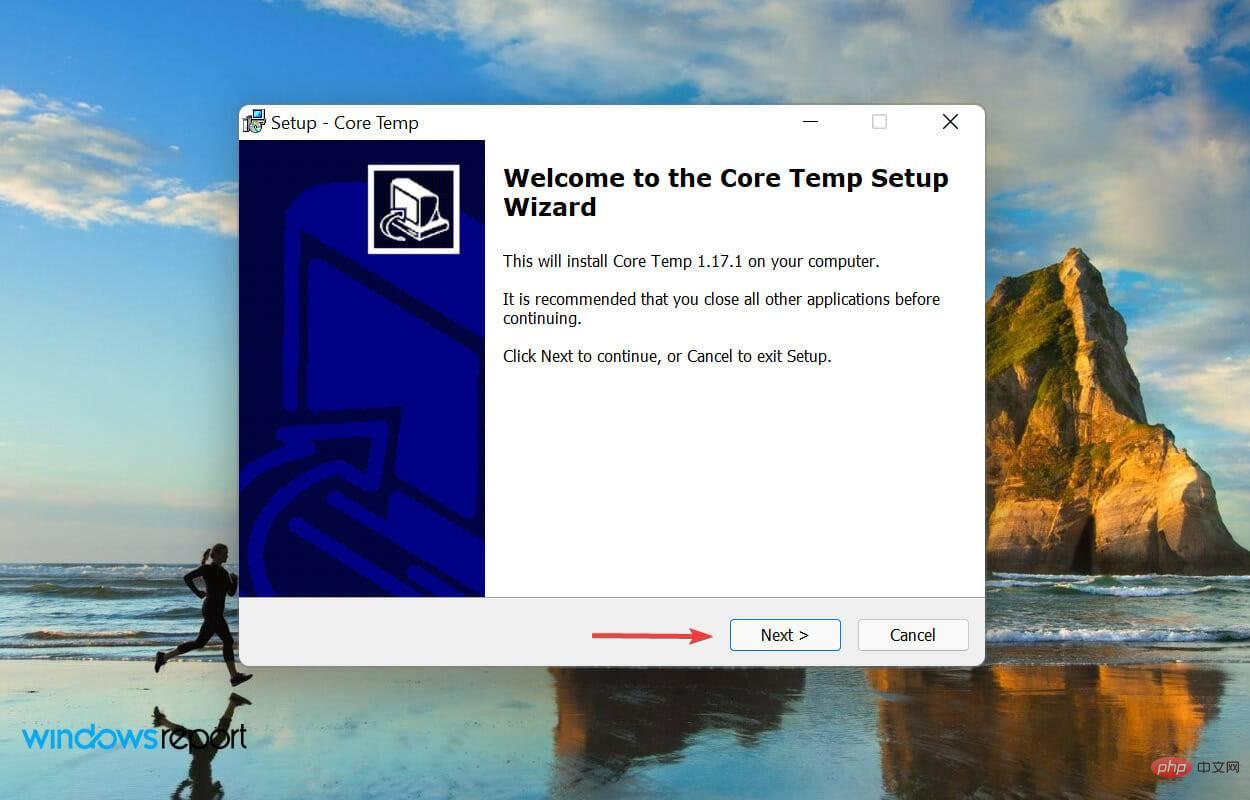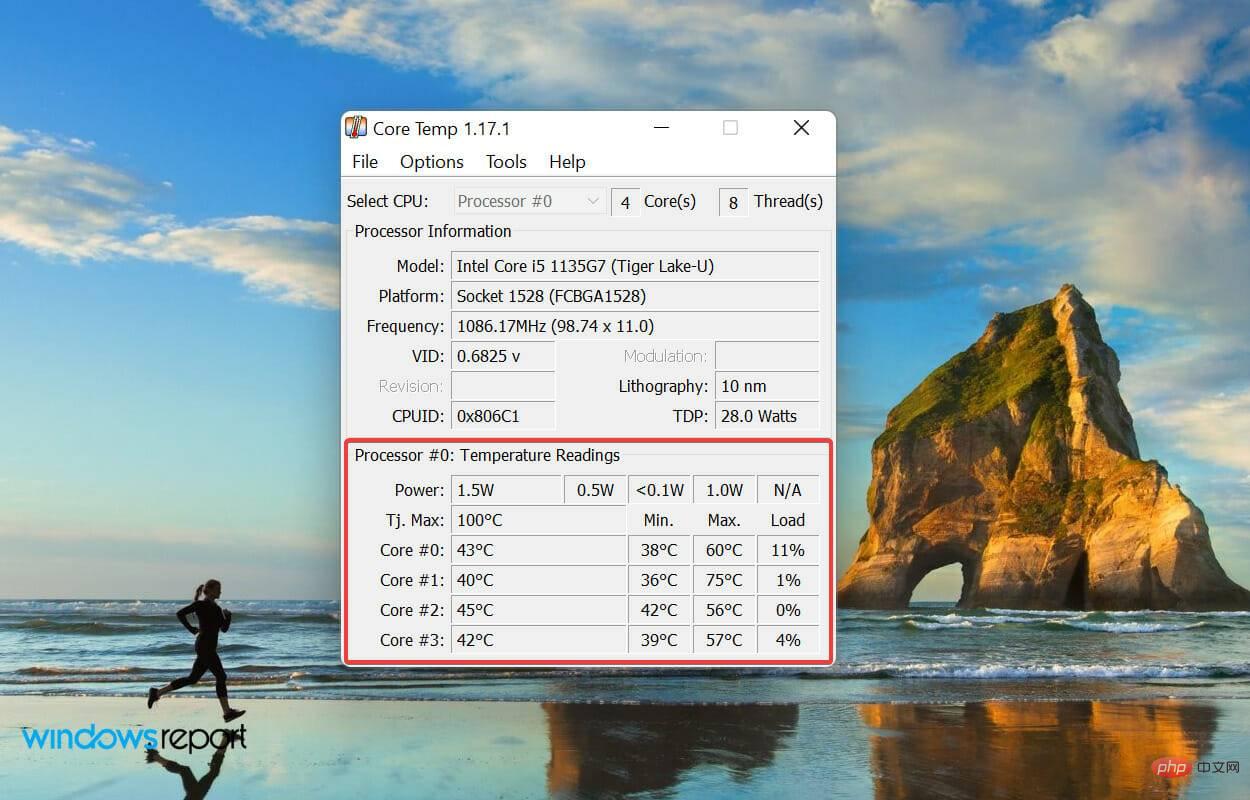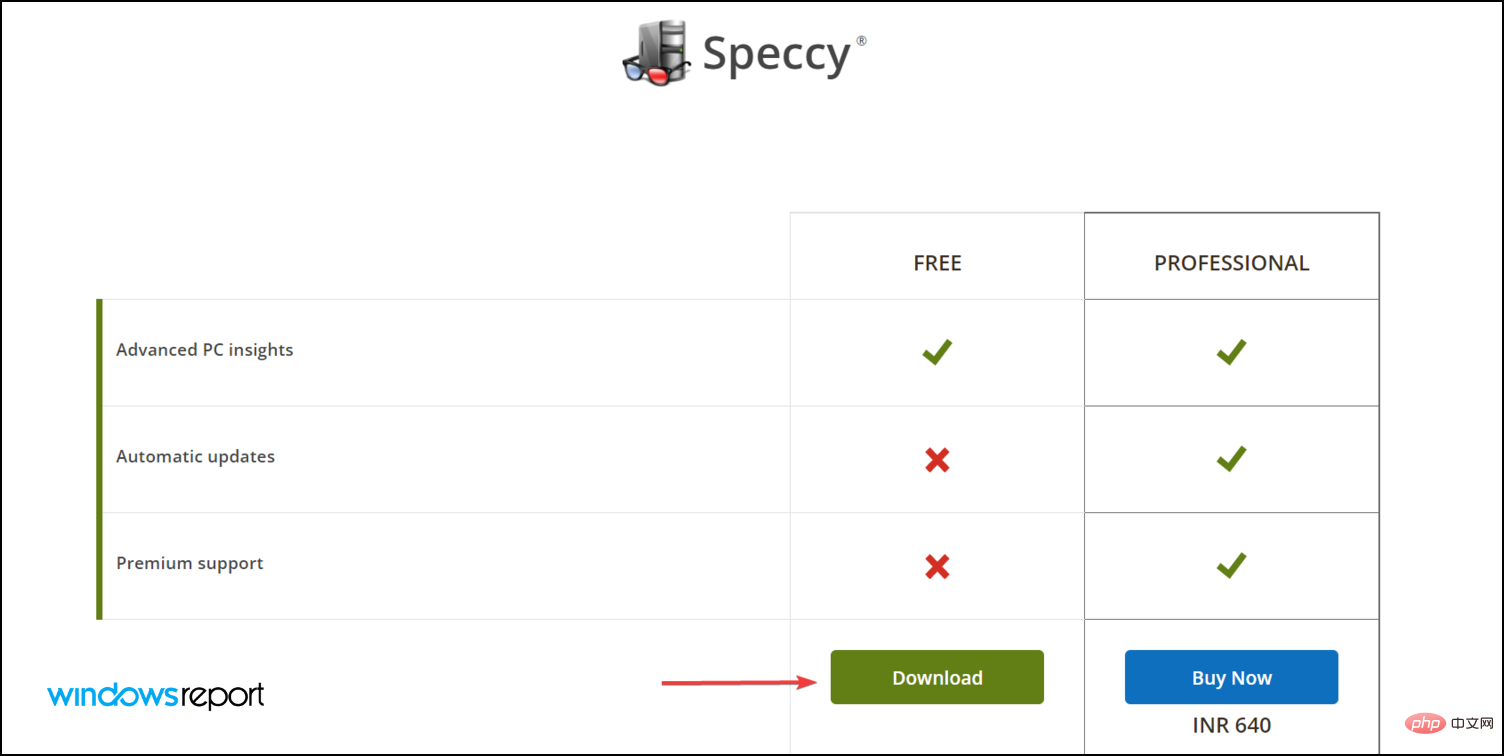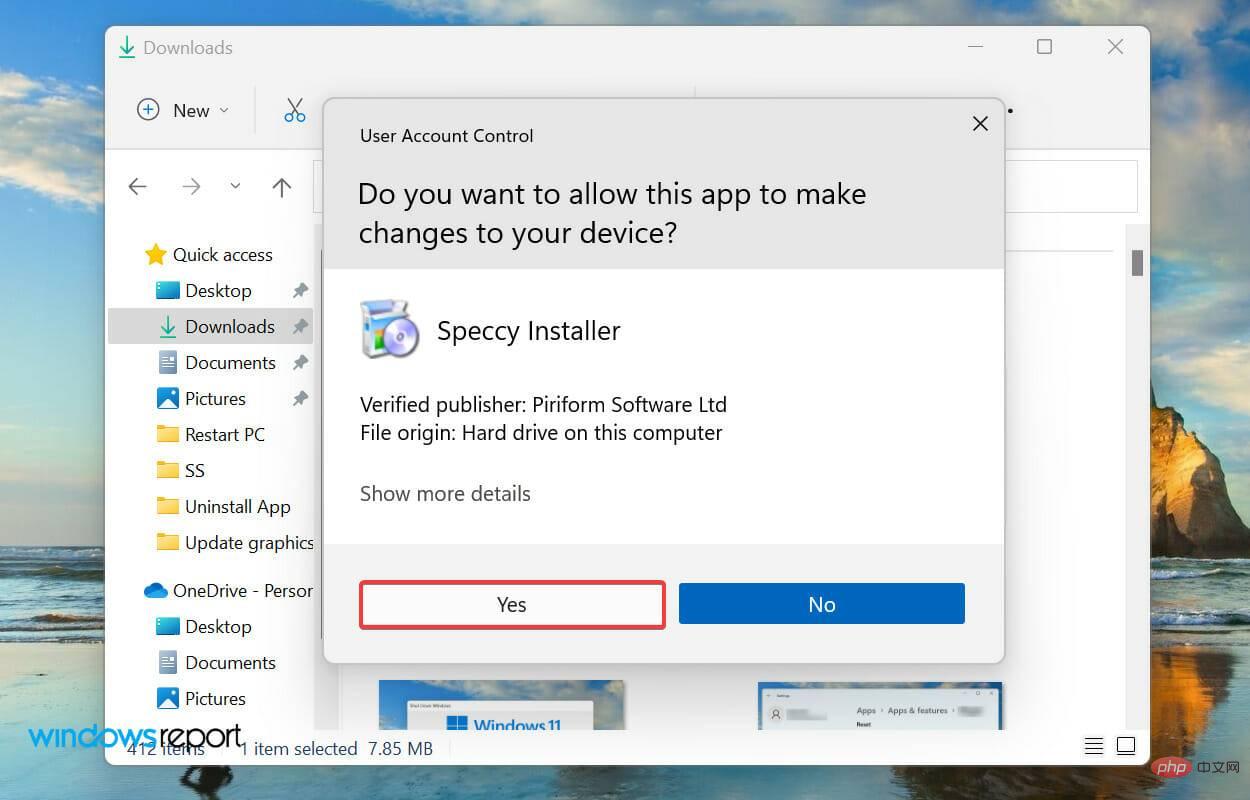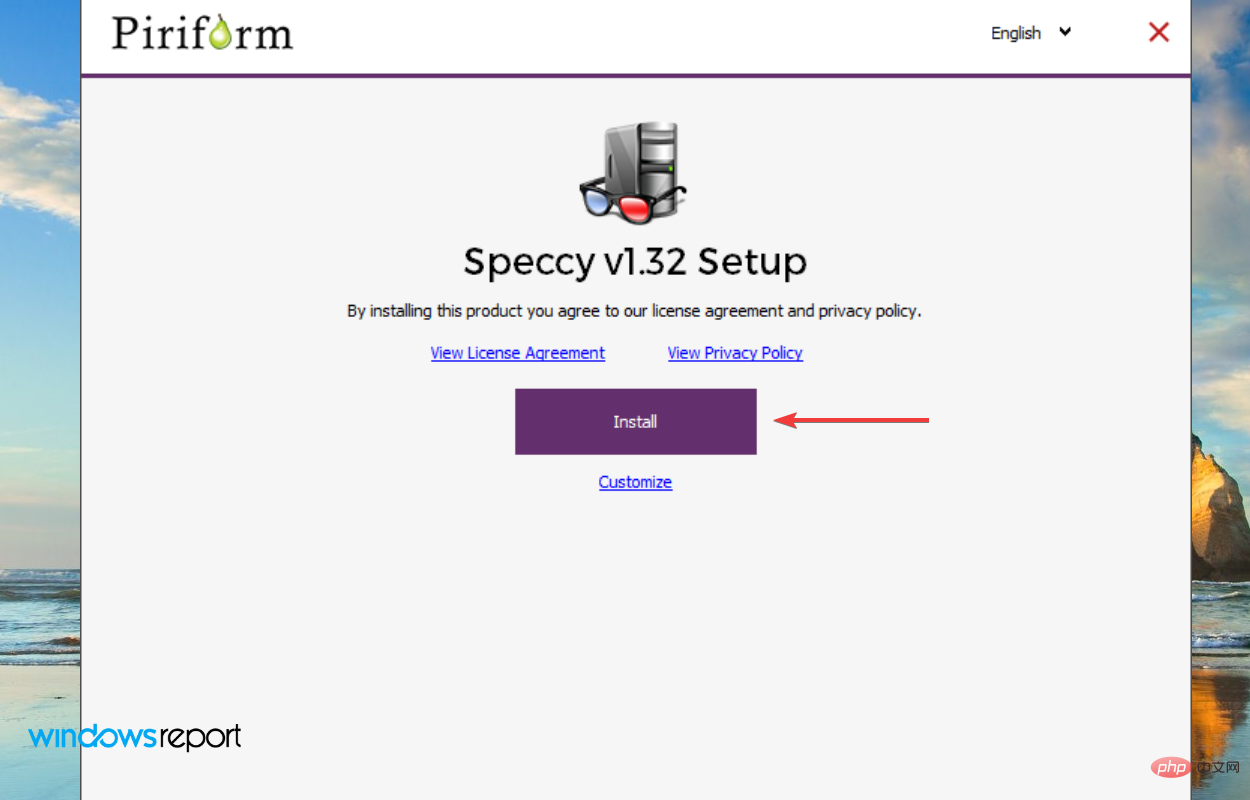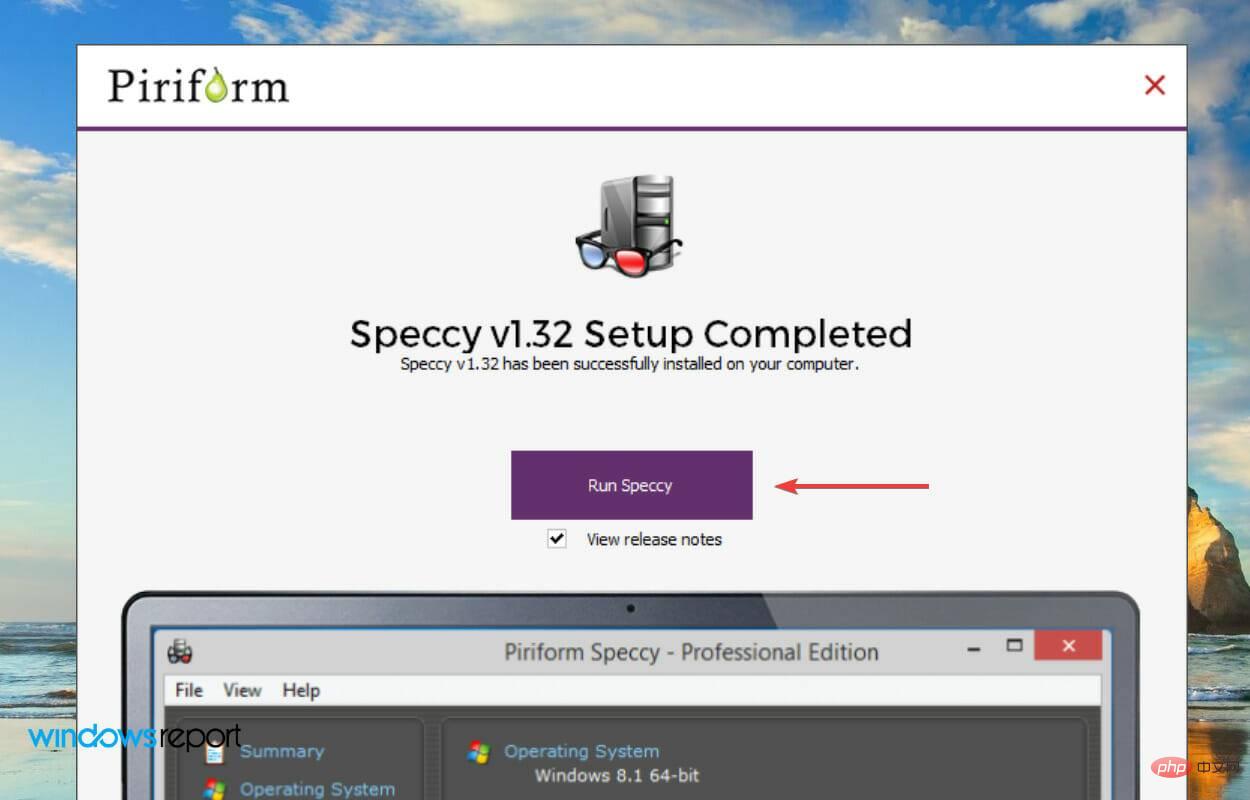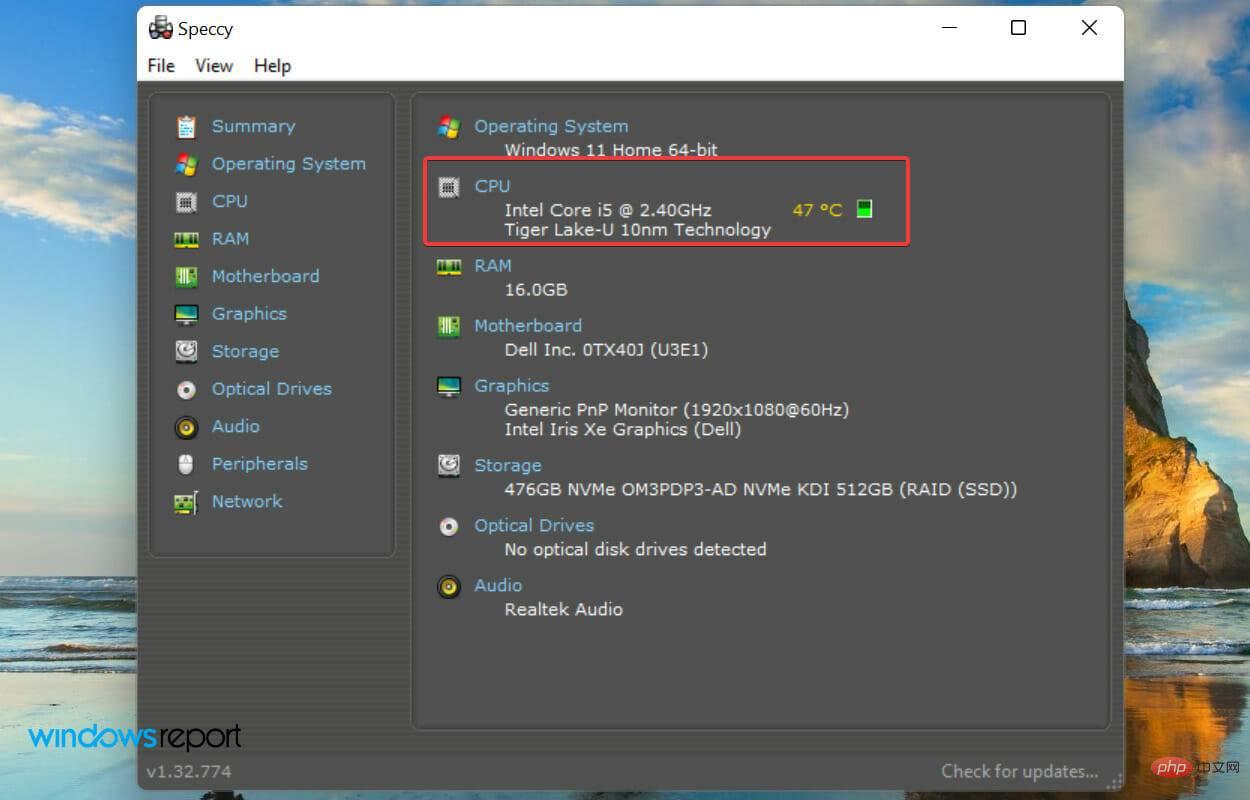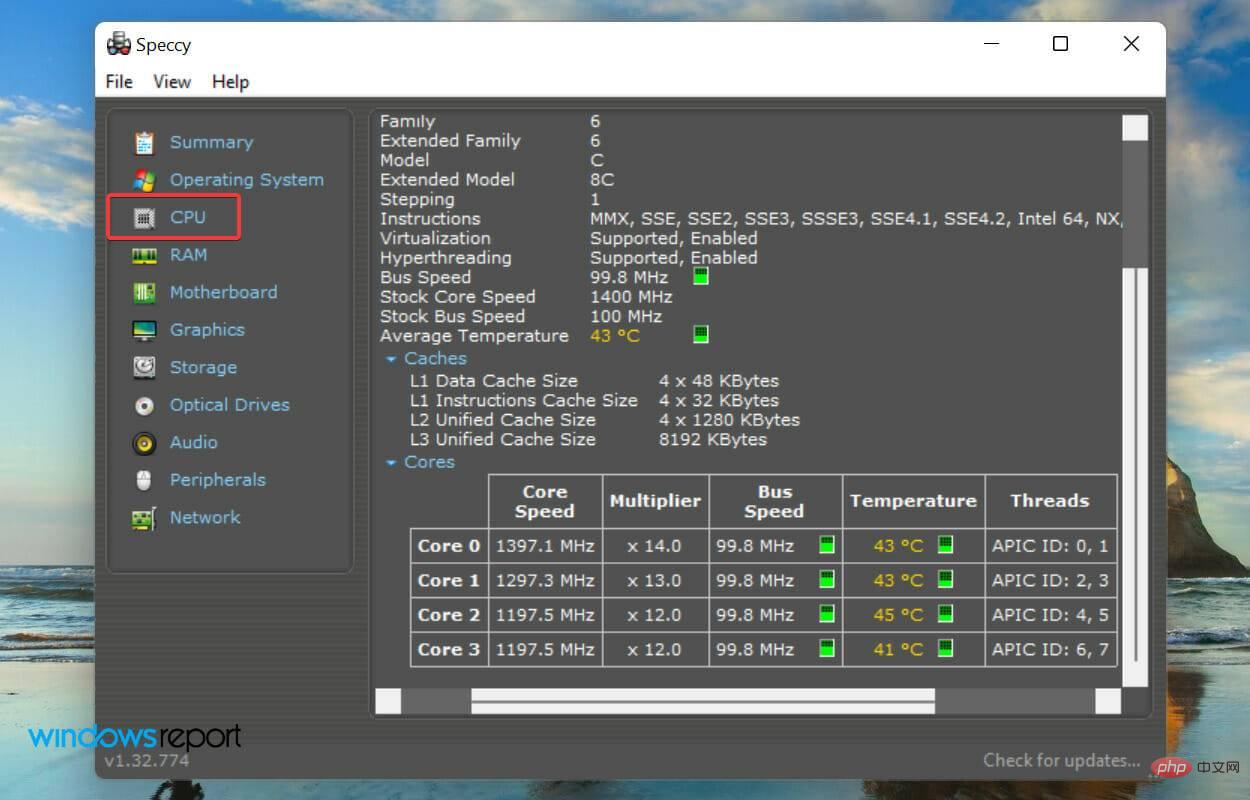How to check CPU temperature in Windows 11
What is normal CPU temperature and when should I be concerned?
There is no specific answer to this question. It depends on many factors, such as system configuration, whether it is overclocked, etc.
Ideally, normal CPU temperature should be in the range of 30°C to 55°C. If you are working on resource-intensive applications, CPU temperatures may approach 65°C. However, this shouldn't happen too often either.
Any temperature above 90°C can be dangerous to components and impair the performance of your PC. In this case, if the computer does not shut down automatically, shut down the computer and let the system cool down.
Also, clean any dust that may have settled in or around the CPU, and remove anything blocking airflow. Additionally, you can manually control your computer fan to lower the temperature to normal levels.
How to check CPU temperature in Windows 11?
1. Entering the BIOS
Your computer's BIOS interface may vary, but the steps listed here will provide you with a basic understanding of the process. Additionally, you can check the manufacturer's website for the exact steps.- Press Alt F4 and select Restart from the drop-down menu in the Close Windows box.

- Next, click OK to restart your computer.

- After the display lights up, press the F12 or Del key to enter the system BIOS. The manufacturer's name usually appears on this screen. To be on the safe side, click on the relevant key multiple times as the operating system boots very fast in new age systems.
- In BIOS, look for a tab named CPU or Performance Monitor, the CPU temperature should be listed there.

For those of you wondering how to check CPU temperature in Windows 11 without software, BIOS is the answer. On most computers you can check this way.
It is also suitable for those who avoid relying on third-party applications for functions that do not require them.
However, if it does not work or does not provide all the required information, there are also many third-party applications, two of which are listed in the following section.
2. Use an app to check CPU temperature
Core Temp is a reliable and effective third-party tool, but we cannot guarantee the same for the ads listed on its website. Therefore, we recommend that you keep a safe distance or do so at your own risk.- Go to Core Temp official website and click on the “Download” option.

- Double-click the downloaded file and select Yes in the UAC (User Account Control) prompt that appears.

- After the installation starts, click Next and follow the on-screen instructions to complete the installation process.

- After installation, launch the Core Temp application and you can now check the CPU temperature from the main panel.

As the name suggests, the Core Temp app is designed to check and display the CPU temperature in Windows 11. It is very effective and has a simple and innovative interface.
In addition to checking the temperature, you can also enable overheat protection to protect your system in case of a sudden rise in temperature.
3. Use the all-in-one performer solution
- Visit the Speccy official website and click the "Download" button under the "Free" column.

- Next, double-click the downloaded settings and click Yes on the UAC (User Account Control) prompt that pops up.

- Click Install in settings.

- After the installation process is complete, click Run Speccy.

- You can now check the CPU temperature listed in the app's home screen.

- Alternatively, you can navigate to the CPU tab from the left to get detailed information about performance and temperatures.

The Speccy app provides a summary of system performance along with temperatures. There are multiple tabs on the left, each tab listing relevant information.
Speccy is an all-around performer, and if you're looking for a tool that does more than just check your CPU temperature in Windows 11, you've found it.
What are the best CPU temperature monitoring software tools?
As was the case before, while some of them will only check the CPU temperature, others will do a lot more and give you a comprehensive summary of every aspect.
What to do if the CPU temperature is high?
If you work heavily on your system and have a lot of processes running in the background, it's not uncommon for CPU temperatures to spike to around 50°C to 60°C.
However, if you notice that the temperature consistently hovers within this range, it simply indicates a component or software problem.
In this case, you should check if the CPU fan is working properly and the airflow is smooth. Additionally, you can use thermal paste to control the temperature.
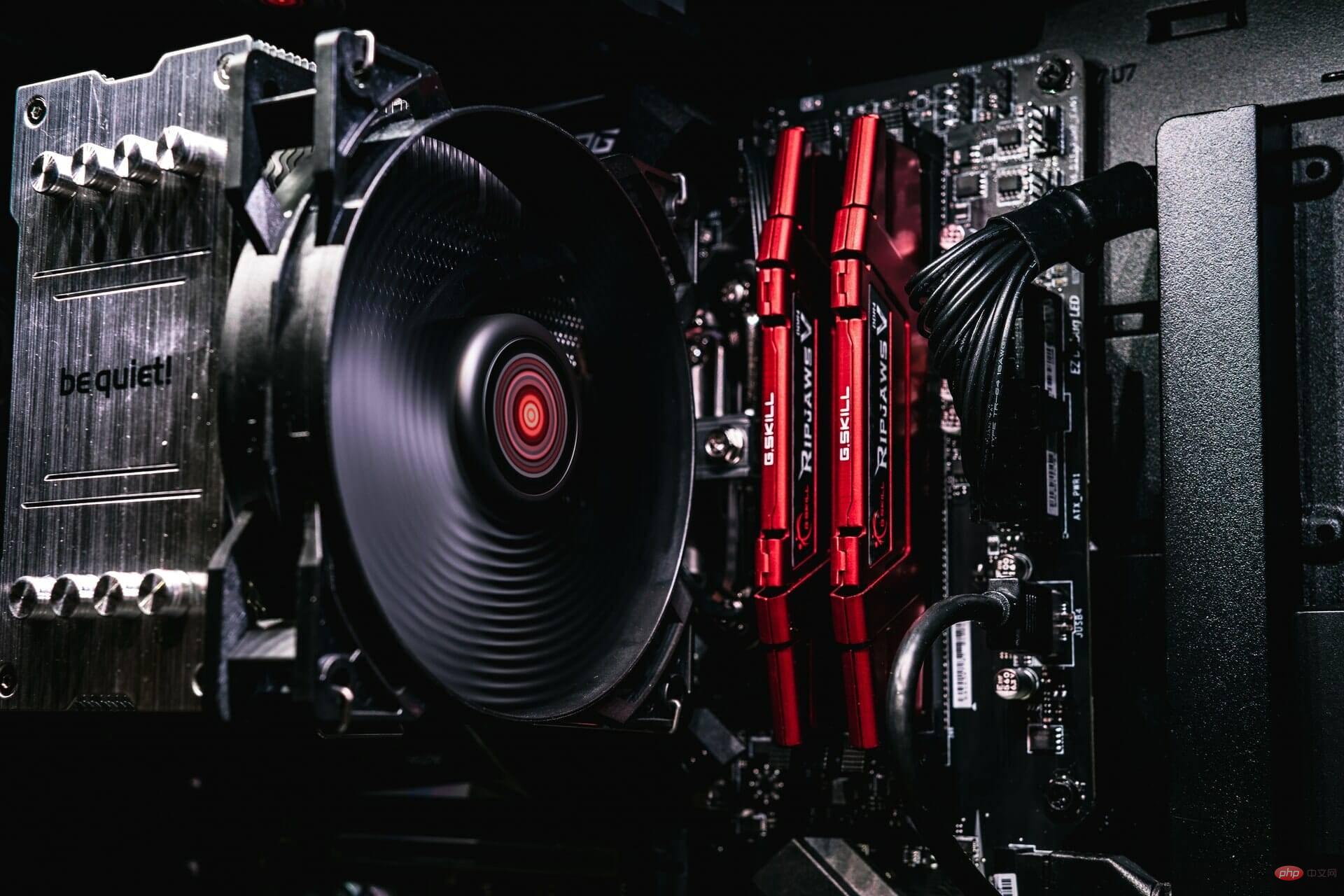
The above is the detailed content of How to check CPU temperature in Windows 11. For more information, please follow other related articles on the PHP Chinese website!

Hot AI Tools

Undresser.AI Undress
AI-powered app for creating realistic nude photos

AI Clothes Remover
Online AI tool for removing clothes from photos.

Undress AI Tool
Undress images for free

Clothoff.io
AI clothes remover

Video Face Swap
Swap faces in any video effortlessly with our completely free AI face swap tool!

Hot Article

Hot Tools

Notepad++7.3.1
Easy-to-use and free code editor

SublimeText3 Chinese version
Chinese version, very easy to use

Zend Studio 13.0.1
Powerful PHP integrated development environment

Dreamweaver CS6
Visual web development tools

SublimeText3 Mac version
God-level code editing software (SublimeText3)

Hot Topics
 What is the reason why PS keeps showing loading?
Apr 06, 2025 pm 06:39 PM
What is the reason why PS keeps showing loading?
Apr 06, 2025 pm 06:39 PM
PS "Loading" problems are caused by resource access or processing problems: hard disk reading speed is slow or bad: Use CrystalDiskInfo to check the hard disk health and replace the problematic hard disk. Insufficient memory: Upgrade memory to meet PS's needs for high-resolution images and complex layer processing. Graphics card drivers are outdated or corrupted: Update the drivers to optimize communication between the PS and the graphics card. File paths are too long or file names have special characters: use short paths and avoid special characters. PS's own problem: Reinstall or repair the PS installer.
 How to solve the problem of loading when PS is always showing that it is loading?
Apr 06, 2025 pm 06:30 PM
How to solve the problem of loading when PS is always showing that it is loading?
Apr 06, 2025 pm 06:30 PM
PS card is "Loading"? Solutions include: checking the computer configuration (memory, hard disk, processor), cleaning hard disk fragmentation, updating the graphics card driver, adjusting PS settings, reinstalling PS, and developing good programming habits.
 How to speed up the loading speed of PS?
Apr 06, 2025 pm 06:27 PM
How to speed up the loading speed of PS?
Apr 06, 2025 pm 06:27 PM
Solving the problem of slow Photoshop startup requires a multi-pronged approach, including: upgrading hardware (memory, solid-state drive, CPU); uninstalling outdated or incompatible plug-ins; cleaning up system garbage and excessive background programs regularly; closing irrelevant programs with caution; avoiding opening a large number of files during startup.
 Is slow PS loading related to computer configuration?
Apr 06, 2025 pm 06:24 PM
Is slow PS loading related to computer configuration?
Apr 06, 2025 pm 06:24 PM
The reason for slow PS loading is the combined impact of hardware (CPU, memory, hard disk, graphics card) and software (system, background program). Solutions include: upgrading hardware (especially replacing solid-state drives), optimizing software (cleaning up system garbage, updating drivers, checking PS settings), and processing PS files. Regular computer maintenance can also help improve PS running speed.
 Does mysql need the internet
Apr 08, 2025 pm 02:18 PM
Does mysql need the internet
Apr 08, 2025 pm 02:18 PM
MySQL can run without network connections for basic data storage and management. However, network connection is required for interaction with other systems, remote access, or using advanced features such as replication and clustering. Additionally, security measures (such as firewalls), performance optimization (choose the right network connection), and data backup are critical to connecting to the Internet.
 How to set color mode for export PDF on PS
Apr 06, 2025 pm 05:09 PM
How to set color mode for export PDF on PS
Apr 06, 2025 pm 05:09 PM
The secret to export PDFs with accurate colors: choose color mode according to the purpose: RGB for network display, CMYK for professional printing. Check Embed Profiles when exporting to maintain color consistency. Adjust compression settings to balance image quality and file size. For PDFs for networks, use RGB mode; for PDFs for printing, use CMYK mode.
 Is PS slow loading related to other programs that are running?
Apr 06, 2025 pm 06:03 PM
Is PS slow loading related to other programs that are running?
Apr 06, 2025 pm 06:03 PM
The secrets to mastering Office software include: understanding different versions and platforms, correctly installing and configuring, proficient in using the software interface, in-depth understanding of feature operations, application collaboration and sharing functions, utilizing templates and styles, mastering advanced skills, and solving common problems. In addition, you need to choose a version that suits your needs, make good use of templates and styles, develop backup habits, and learn shortcut keys and advanced techniques to improve efficiency.
 How to solve the problem of loading when the PS opens the file?
Apr 06, 2025 pm 06:33 PM
How to solve the problem of loading when the PS opens the file?
Apr 06, 2025 pm 06:33 PM
"Loading" stuttering occurs when opening a file on PS. The reasons may include: too large or corrupted file, insufficient memory, slow hard disk speed, graphics card driver problems, PS version or plug-in conflicts. The solutions are: check file size and integrity, increase memory, upgrade hard disk, update graphics card driver, uninstall or disable suspicious plug-ins, and reinstall PS. This problem can be effectively solved by gradually checking and making good use of PS performance settings and developing good file management habits.



